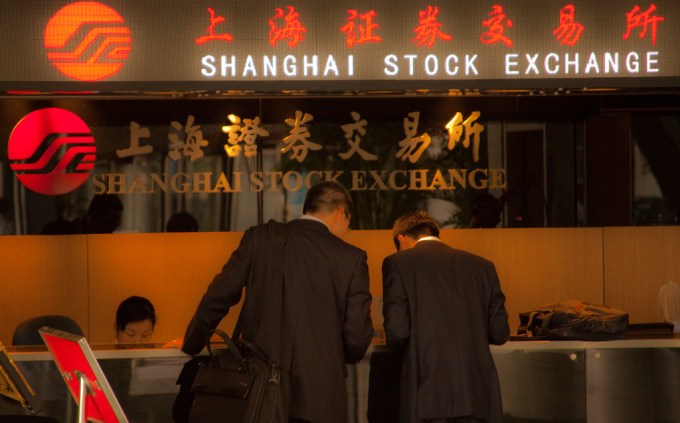Phil Wickham
Late last month a group of venture capital leaders and Kauffman Fellows from around the world met in Singapore to discuss entrepreneurship in Asia. Their most pressing questions were around the effect China’s stock market crash last July and rough start to 2016 may have on the decade-long venture capital boom in Singapore and Hong Kong.
Their conclusion: While China’s economy is slowing, it is not a monolith that booms and crashes in a cycle where all boats rise or fall together.
Glenn Solomon of GGV Capital views China as two economies: the “old,” largely comprising state-owned enterprises, and a “new” economy of venture-backed, mobile, and Internet start-ups. The old guard—from declining manufacturing to brick and mortar retailers—is suffering. Tech-enabled companies leveraging the Internet, mobile devices, and social media are booming.
“While old economy industries in China are slowing, the growth in new economy industries remains vibrant,” Solomon writes on his blog, Going Long.
In the last 30 years, China’s economy has grown as much as the United States did in 150 years, and now its “old” economy is set for a painful correction. But while the world’s second-largest economy grew at its slowest pace in a quarter of a century last year, China is hardly collapsing.
Growth was 6.9% in 2015, just below government expectations of 7% and the 7.3% recorded in 2014.

Much of that growth is spurred by the “new” economy that will continue expanding, driven by BAT—Baidu or the “Google of China,” e-commerce firm Alibaba, and social media giant Tencent. These three firms have been on a massive spending spree, buying up startups to dominate China’s rapid shift to smartphones and mobile devices. The woes of China’s “old” economy should do little to alter that course.
Keytone Ventures Director Eric Tau says the “C2C” (copy to China) model—replicating successful firms such as Google or Facebook—has been a boon. He explains, “With many similarities in culture and market size, people expect to see many ‘copy to ASEAN’ cases in the next 10 years as the infrastructure matures and spending power increases.”
Helen Wong, a partner at Qiming Venture Partners, says Indonesia’s low smartphone penetration rate and sizable potential user base make it attractive.
Meanwhile, Singapore has benefited from China’s weakening stock market. Late last year, there was an uptick in foreign money into Southeast Asia from investors who had historically invested in China. The shift was buoyed by valuations in China being expensive. VC investors are also diversifying portfolios across Asia, increasing exposure to Southeast Asia and India.
Founding General Partner Hian Goh of NSI Ventures, a Series A fund focused on Southeast Asia, says as venture capital has grown regionally, Singapore and Hong Kong—already established financial centers—have become hubs for Series B and later rounds of financing. Seed investment in earlier rounds is split between Singapore and localized offices in places such as Vietnam and Indonesia.

Singapore, with strong policies promoting entrepreneurs, is a safe bet. Singapore’s government poured S$16.1 billion into technology and research grants from 2011-2015 and will invest another S$19 billion over the next five years.
Vinnie Lauria, managing partner of Golden Gate Ventures, says the island economy has diversified ties with China and a host of other nations including India, Indonesia, Israel, and the United States.
As China addresses its economic challenges and companies seek a safe venue for investment cash, Singapore’s startup scene should benefit.
Venture capital has been booming in Southeast Asia, and especially in Singapore. A report by Preqin and the Singapore Venture Capital and Private Equity Association (SVCA) revealed that Singaporean private equity and venture capital fund managers deployed more than $9 billion in 2014. And in 2013, venture funding for Singapore’s technology sector was $1.71 billion, up from just $27.9 million in 2011, according to Asian Venture Capital Journal Research.
Hong Kong has closer ties to Beijing and so may see some volatility, but overall it too remains a good bet, says Kauffman Fellow Anthony Chang, managing director at TL Ventures. Hong Kong attracts talent because of its unique location, with highly developed infrastructure where you can ride a subway to meet your OEM partner. “I don’t see the recent market turmoil having a huge effect on the level of activity happening in the startup world here in Hong Kong,” Chang says.
Investors will continue to be drawn to Southeast Asia for its young, highly educated workforce and the business-friendly environment that makes it perfectly positioned to prosper.
About one third of Singapore’s population comes from elsewhere—a dynamic associated with innovation. (For example, a 2012 Kauffman Foundation study revealed that in the previous seven years, 43.9 percent of Silicon Valley startups had at least one founder born outside the United States.)

As China shifts to become a consumption economy, its growth is increasingly spurred by a sophisticated, young workforce. Demographics and cultural trends should underpin consumption growth.
For example, the Motion Picture Association of America expects that by 2017 China will take in more money at the box office than U.S. movie theaters. Countless global firms are enjoying their fastest growth in China, including the world’s second-most valuable brand, Apple, and sharing-economy innovators Uber and AirBnB.
To be sure, China faces struggles. Millions of people are mired in poverty, it has a rapidly aging (and male) population, and it faces strong pressure to devalue the renminbi and open technology markets. Nevertheless, China’s new economy will drive the region’s appetite for venture capital. To ignore the power of China’s new economy would be to risk missing out on the next Alibaba.






























Comment